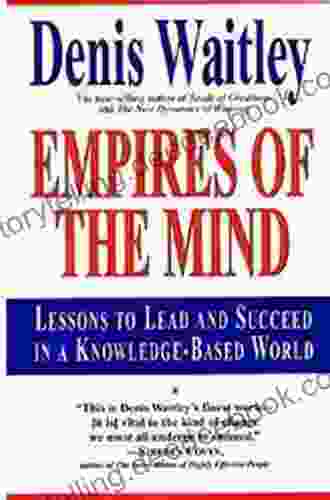The Colonial Past and the Politics of the Present: The Wiles Lectures

The legacy of colonialism continues to shape our world in profound and often insidious ways. From the enduring inequalities between nations to the ongoing struggles for social justice, the imprint of colonial rule can be seen in countless aspects of contemporary politics, economics, and social structures. The Wiles Lectures, a prestigious series hosted by Queen's University in Canada, aim to shed light on this complex and often contentious topic. 4.4 out of 5 This article will delve into the insights of the Wiles Lectures, exploring the multifaceted ways in which the colonial past continues to influence the politics of the present. By examining historical analysis, current events, and global affairs, we will uncover the enduring impact of colonialism and its implications for our understanding of the world around us. One of the most enduring legacies of colonialism is the economic disparities that persist between former colonizers and the countries they once ruled. Colonial powers often exploited the resources of their colonies, extracting raw materials and cheap labor to fuel their own economic growth. This exploitation left many former colonies with underdeveloped economies and a dependence on the global market that often perpetuates inequality. For example, the Scramble for Africa in the late 19th century led to the division of the continent into arbitrary borders that often ignored existing cultural and linguistic boundaries. This fragmentation hindered economic integration and contributed to ongoing political instability in many African countries. Colonialism also had a profound impact on the political systems of former colonies. In many cases, colonial powers imposed authoritarian or semi-authoritarian regimes that suppressed local dissent and stifled the development of democratic institutions. This legacy of authoritarianism can be seen in the high number of dictatorships and autocracies that emerged in many former colonies after independence. Moreover, the arbitrary borders imposed by colonial powers often divided ethnic and linguistic groups, creating the potential for ethnic conflict and territorial disputes. These tensions have fueled wars and civil conflicts in many parts of the world, exacerbating political instability and hindering development. Colonialism also had a significant impact on social stratification. Colonial powers often imposed hierarchical social systems that privileged the colonizers and marginalized indigenous populations. This social stratification persisted long after independence, resulting in ongoing discrimination and inequality. For example, in India, the caste system was reinforced and exploited by British colonial rule, leading to centuries-long discrimination and social injustice. Similarly, in South Africa, apartheid was institutionalized under colonial rule, creating a deeply entrenched system of racial segregation and inequality. The period following the end of formal colonial rule is often referred to as the postcolonial era. However, the legacy of colonialism did not simply disappear with the granting of independence. Instead, new forms of domination and control emerged, often referred to as neocolonialism. Neocolonialism refers to the informal ways in which former colonial powers continue to exert influence over their former colonies. This can include economic dependence, political intervention, and cultural hegemony. For example, many former colonies remain heavily dependent on the global economy, which is dominated by Western powers. This dependence can limit their ability to pursue independent economic policies. Moreover, former colonial powers often continue to intervene in the politics of their former colonies, either directly or indirectly. This intervention can take the form of military intervention, economic sanctions, or political pressure. For example, the United States has intervened in the politics of many Latin American countries throughout history, often to protect its economic interests or prevent the rise of socialist governments. Coming to terms with the colonial past is a complex and often contentious process. Former colonizers and colonized peoples have different perspectives on the past, and different interests in shaping the historical narrative. This can lead to conflicts over memory and reconciliation. For example, in France, there is an ongoing debate about the country's colonial past, with some historians arguing that France should apologize for its colonial crimes and others resisting such calls. Similarly, in the United States, the debate over reparations for slavery continues to divide the nation. Reconciliation between former colonizers and colonized peoples requires acknowledging the past, addressing historical injustices, and finding ways to move forward together. This can be a difficult and painful process, but it is essential for creating a more just and equitable future. The colonial past continues to cast a long shadow over the politics of the present. The enduring impact of colonialism can be seen in economic inequalities, political instability, social stratification, and ongoing conflicts over memory and reconciliation. Understanding the legacy of colonialism is essential for understanding the complex challenges facing the world today. The Wiles Lectures offer a valuable platform for scholars and policymakers to engage with these issues and explore ways to create a more just and equitable future. By confronting the colonial past and its enduring impact, we can work towards a world where the wounds of history are healed and all people are treated with dignity and respect. Language : English File size : 8808 KB Text-to-Speech : Enabled Screen Reader : Supported Enhanced typesetting : Enabled Word Wise : Enabled Print length : 359 pages X-Ray for textbooks : Enabled The Enduring Impact of Colonialism
Economic Legacies
Political Consequences
Social Stratification
Postcolonialism and Neocolonialism
The Politics of Memory and Reconciliation
References
4.4 out of 5
| Language | : | English |
| File size | : | 8808 KB |
| Text-to-Speech | : | Enabled |
| Screen Reader | : | Supported |
| Enhanced typesetting | : | Enabled |
| Word Wise | : | Enabled |
| Print length | : | 359 pages |
| X-Ray for textbooks | : | Enabled |
Do you want to contribute by writing guest posts on this blog?
Please contact us and send us a resume of previous articles that you have written.
 Book
Book Novel
Novel Chapter
Chapter Text
Text Genre
Genre Reader
Reader Library
Library Magazine
Magazine Paragraph
Paragraph Sentence
Sentence Bookmark
Bookmark Bibliography
Bibliography Foreword
Foreword Synopsis
Synopsis Codex
Codex Tome
Tome Bestseller
Bestseller Classics
Classics Library card
Library card Biography
Biography Reference
Reference Dictionary
Dictionary Thesaurus
Thesaurus Character
Character Resolution
Resolution Librarian
Librarian Card Catalog
Card Catalog Borrowing
Borrowing Stacks
Stacks Periodicals
Periodicals Study
Study Research
Research Lending
Lending Rare Books
Rare Books Literacy
Literacy Study Group
Study Group Thesis
Thesis Dissertation
Dissertation Reading List
Reading List Theory
Theory Ilya Shapiro
Ilya Shapiro Scott Alderman
Scott Alderman Jackie Walsh
Jackie Walsh Supersummary
Supersummary Mark Schneider
Mark Schneider Roger J Stone
Roger J Stone Nacho Dominis
Nacho Dominis Serges Djoyou Kamga
Serges Djoyou Kamga Michael C Brodsky
Michael C Brodsky Christine Westhead
Christine Westhead Maria Cecilia Galimberti Oliveira
Maria Cecilia Galimberti Oliveira Mitsutoshi Inaba
Mitsutoshi Inaba Baron Arthur Ponsonby Ponsonby
Baron Arthur Ponsonby Ponsonby Andrew Livesey
Andrew Livesey Joanna Penn
Joanna Penn Babe Kilgore
Babe Kilgore Robin Totton
Robin Totton Matthew E Stanley
Matthew E Stanley Herbert Romerstein
Herbert Romerstein Sylvie Baumgartel
Sylvie Baumgartel
Light bulbAdvertise smarter! Our strategic ad space ensures maximum exposure. Reserve your spot today!
 Robert HeinleinFollow ·2.3k
Robert HeinleinFollow ·2.3k Andrew BellFollow ·4.7k
Andrew BellFollow ·4.7k Cody BlairFollow ·6.6k
Cody BlairFollow ·6.6k Jackson BlairFollow ·6.5k
Jackson BlairFollow ·6.5k Houston PowellFollow ·9k
Houston PowellFollow ·9k Ian PowellFollow ·7.6k
Ian PowellFollow ·7.6k Enrique BlairFollow ·15.2k
Enrique BlairFollow ·15.2k Douglas AdamsFollow ·8.3k
Douglas AdamsFollow ·8.3k

 Howard Blair
Howard BlairClassical Music Themes for Easy Mandolin, Volume One
Classical Music Themes for Easy Mandolin,...

 Paulo Coelho
Paulo CoelhoThe Heretic Tomb: Unraveling the Mysteries of a Lost...
Synopsis In Simon Rose's captivating debut...

 Rodney Parker
Rodney ParkerThe Passionate Friends Annotated Wells: A Deeper...
Unveiling the...

 Ed Cooper
Ed CooperDelicious Stories of Love, Laughs, Lies, and Limoncello...
In the heart of...

 Elmer Powell
Elmer PowellHal Leonard Piano For Kids Songbook: Unleashing the...
Music holds immense...
4.4 out of 5
| Language | : | English |
| File size | : | 8808 KB |
| Text-to-Speech | : | Enabled |
| Screen Reader | : | Supported |
| Enhanced typesetting | : | Enabled |
| Word Wise | : | Enabled |
| Print length | : | 359 pages |
| X-Ray for textbooks | : | Enabled |












